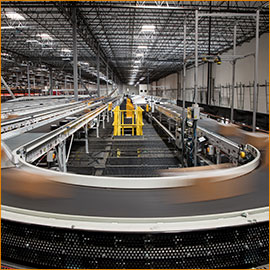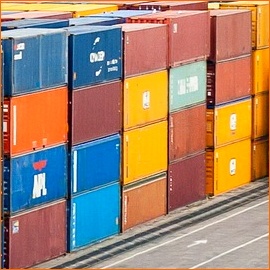
In today’s dynamic world and highly competitive market, customers expect low-cost, on-time deliveries, and reliable service tailored to their needs. To maintain a high service level and fulfill the demand, companies do capacity planning for their supply chains. In this post, we explore what capacity planning is, and look at examples of how to account for throughput and storage capacity in a supply chain.
Read more
Meet anyLogistix 2.15! The new version offers a range of improvements, including scenario import and export with external databases.
Read more
Creating and maintaining a result-oriented, efficient supply chain can be tricky since it brings together procurement, production, transportation, sales, and financial sides of your business. This is where optimization can help.
In this article, you'll explore what ‘supply chain optimization‘ means, look at the typical supply chain management and optimization problems, and go through a practical example to learn how to solve those problems.

Coca-Cola HBC worked with firstBit | NFP to optimize its extensive delivery network in the CIS region. Using anyLogistix supply chain software, they tackled five key business challenges in logistics and created a solution that accommodates over 200,000 clients.
The manufacturer’s supply chain is complex, with factors including variable transportation and storage costs, and seasonal demand variations. This complexity was preventing effective analysis and the holding back the possibility of cost cutting.

In their Scenario-Based Strategic Sourcing webinar, SimWell showed how network optimization and simulation help balance pricing, costs, service levels, and more when selecting suppliers for goods and services. This webinar shows how developments in anyLogistix supply chain software let companies realize optimal profits while remaining agile and responsive to changing business conditions.
Read more
Have you ever designed a digital supply chain? If yes, then you know how complex this process might be. Miss just one important element and your supply chain model will fail to deliver accurate results. What to do?
In this webinar, our partners at SimWell in North America demonstrate 3 key tips and tricks that make a world of a difference to model building.

Onshoring a supply chain for resiliency and sustainability is a strategy worth evaluating, but how to do this effectively? The COVID-19 pandemic, trade-wars, and sanctions are making the question more urgent. North American simulation supply chain specialists, SimWell, answer this question and more in their webinar Evaluating Onshoring Strategies with Network Optimization and Simulation.

Many businesses turn to Excel spreadsheets when planning for their supply chains. This traditional approach is relatively easy yet has a limited application area when it comes to solving complex business challenges. Beyond this method, the most powerful techniques for supply chain design are analytical optimization and dynamic simulation.
Learn how to choose the right one for your business.

Collaboration and agility in supply chain teams are key to gaining a competitive advantage and returning higher profits. This means how quickly and easily you can capture data, model your supply chain, and do analysis to support changes is critical. Get it right and you can rapidly adjust tactics and operations based on informed decision making.
Watch the webinar and see how with SimWell Managing Partner Jon Santavy and Senior Supply Chain Consultant Alex Franco.

For more than 30 years, consumer goods giant has been establishing its presence in South East Asia, shipping products to most remote areas and expanding its supply chain network across the region. Expansion, however, came with its challenges: for Indonesia, how could the corporation cost-effectively produce, distribute and market their goods in a country with 15,000 islands that occupies a space nearly 15 times the size of England?
Read more